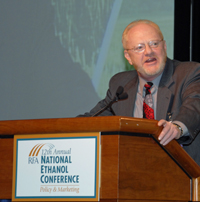 This morning the Copenhagen Climate Conference kicked off. As I mentioned in earlier posts, the two big issues are the reduction of CO2 and the halting of deforestation. As I noted in other writings, there are Climate Alarmists and Climate Skeptics. Climate Alarmists, which Al Gore would be considered, believe that if we don’t curb global warming now, the earth will face unprecedented consequences. The climate skeptics, as Bjorn Lomborg would be considered, offer the view that the problem has been blown out of proportion or is focused on the wrong culprits. Actually there would be nothing more fun than a Lomborg/Gore debate.
This morning the Copenhagen Climate Conference kicked off. As I mentioned in earlier posts, the two big issues are the reduction of CO2 and the halting of deforestation. As I noted in other writings, there are Climate Alarmists and Climate Skeptics. Climate Alarmists, which Al Gore would be considered, believe that if we don’t curb global warming now, the earth will face unprecedented consequences. The climate skeptics, as Bjorn Lomborg would be considered, offer the view that the problem has been blown out of proportion or is focused on the wrong culprits. Actually there would be nothing more fun than a Lomborg/Gore debate.
On Friday, I presented a ‘skeptics’ view…today I will present an ‘alarmists’ view. For the third book review, I chose Al Gore’s, “Our Choice A Plan to Solve the Climate Crisis.” Most people know that Gore helped to put the global warming debate on the map with his first book and movie, “An Inconvenient Truth.” These efforts led to a shared Oscar and co-recipient of the Nobel Peace Prize in 2007. Gore will also be playing a major role in Copenhagen over the next two weeks.
Gore begins, “It is now abundantly clear that we have at our fingertips all of the tools we need to solve the climate crisis. The only missing ingredient is collective will.”
Throughout the book, Gore uses a combination of words, graphics and pictures to demonstrate the climate change debate, detail many of the solutions and offer policy recommendations. There is one area where I think Gore did a great job, and that is explaining what the six categories of global warming pollution are: carbon dioxide, methane, black carbon, sulfur hexaflouride, tetrafluoroethane, carbon monoxide, butane and nitrous oxide. To date, the biggest focus has been on carbon dioxide and Gore’s focus throughout the book is no different.
Along those same lines, Gore advocates that the most effective way to curb CO2 is through putting a price on carbon. He writes, “An effective plan for solving the climate crisis must include aggressive remedies for our erroneous reliance on deceptive market signals in carbon-based energy.”Read More
 Robert Reynolds of Downstream Alternatives received the award for his “outstanding and dedicated contributions to fuel standards development and as a consensus builder within ASTM between ethanol and petroleum interests.”
Robert Reynolds of Downstream Alternatives received the award for his “outstanding and dedicated contributions to fuel standards development and as a consensus builder within ASTM between ethanol and petroleum interests.”






 An Illinois company has received a $2.5 million federal grant to put in a demonstration project in an Iowa biodiesel plant that could allow the facility to produce the green fuel and cosmetics.
An Illinois company has received a $2.5 million federal grant to put in a demonstration project in an Iowa biodiesel plant that could allow the facility to produce the green fuel and cosmetics. Tomorrow (Tuesday) night will be a magical time in Washington, D.C., as the Capitol Christmas Tree is officially lit.
Tomorrow (Tuesday) night will be a magical time in Washington, D.C., as the Capitol Christmas Tree is officially lit. “It is significant that the Capitol Christmas Tree was delivered with biodiesel because economic development, carbon reduction, and energy security continue to dominate national priorities,” said Joe Jobe, CEO of the National Biodiesel Board. “Biodiesel helps us achieve all of those things.”
“It is significant that the Capitol Christmas Tree was delivered with biodiesel because economic development, carbon reduction, and energy security continue to dominate national priorities,” said Joe Jobe, CEO of the National Biodiesel Board. “Biodiesel helps us achieve all of those things.”